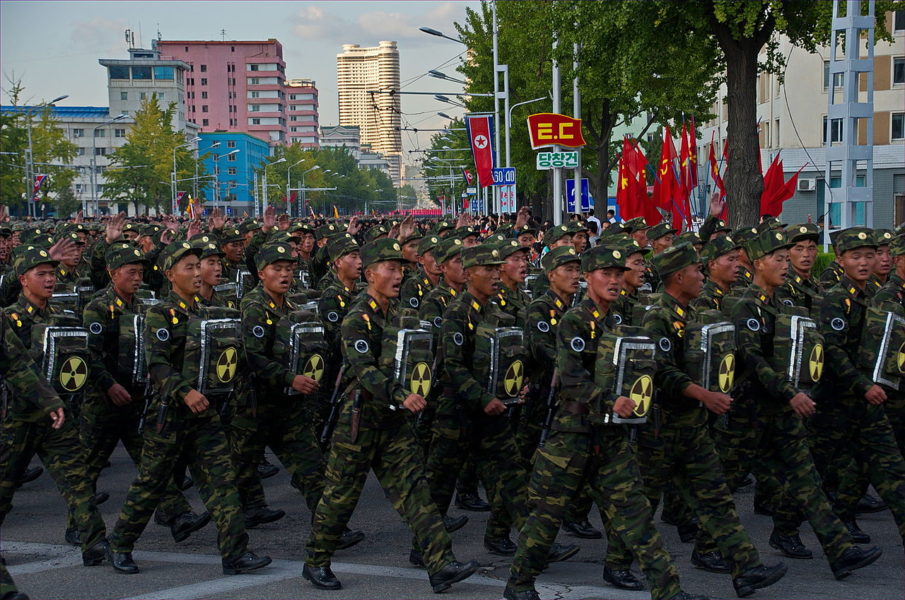According to analysis conducted by 38 North, a Washington-based North Korean monitoring project, Kim Jong Un’s regime may have reprocessed more plutonium than Western experts previously thought – meaning the nation may be able to muster a larger nuclear weapon stockpile than once believed.
Satellite images of the radiochemical laboratory at the Yongbyon nuclear plant in North Korea are said to show signs of operational centrifuges that can be used as part of the process to produce the materials needed to fuel a nuclear weapon, as well as signs of short-term activity in the plant’s “Experimental Light Water Reactor,” according to the think tank’s analysis released on Friday.
According to the report, the images 38 North analyzed covered the period of last September through the end of June, and showed “at least two reprocessing cycles” experts were not previously aware of.
“The Radiochemical Laboratory operated intermittently and there have apparently been at least two unreported reprocessing campaigns to produce an undetermined amount of plutonium that can further increase North Korea’s nuclear weapons stockpile,” 38 North posted.
These two cycles of plutonium production are said to have taken place between September and October of last year, then again in March, as indicated by significant increases in the temperatures observed in the facilities.
However, thermal imaging of the same facility’s isotope/tritium production facility seem to indicate that it has not been functioning throughout the same period. Tritium is used to boost the explosive yield in hydrogen bombs.
Further, thermal patterns at the Uranium Enrichment Facility were also elevated during the same periods of the plutonium cycles are said to have taken place, but 38 North admit they can’t be certain this shift was due to centrifuge operations, or simple maintenance activity.
The fact that the entire plant has not been operational could mean 38 North’s analysis is more about postulation than confirmation, but the development warrants concern nonetheless. With so little known conclusively about North Korea’s nuclear weapons program, extrapolation of this sort has become a necessity. The North Korean regime has a long and storied history of exaggerated claims about their military capabilities, meaning intelligence gathered through data released by their government, or in state-owned media outlets, cannot be trusted.
The international intelligence community can also suffer, at times, from a lack of consensus regarding what North Korea seems to be capable of, brought about by the few facts we know for certain and the effort to connect those pieces to what can be seen in satellite photographs and missile tests. It is because of this lack of certainty that many believe we need to take analysis like that provided on Friday by 38 North at face value, arguing that if it seems like they could be doing something, we need to plan for the possibility that they indeed are.
“There is some doubt within the intelligence community whether Kim Jong Un has that capability today or whether he will soon, but I have to assume he has it, the capability is real, and that he’s moving towards it.” PACOM Commander Harry Harris told the Senate Armed Services Committee about Kim’s nuclear weapons in April.
Since then, North Korea has successfully launched a ballistic missile that experts believe can target U.S. assets as far away as Alaska.
Already have an account? Sign In
Two ways to continue to read this article.
Subscribe
$1.99
every 4 weeks
- Unlimited access to all articles
- Support independent journalism
- Ad-free reading experience
Subscribe Now
Recurring Monthly. Cancel Anytime.


COMMENTS